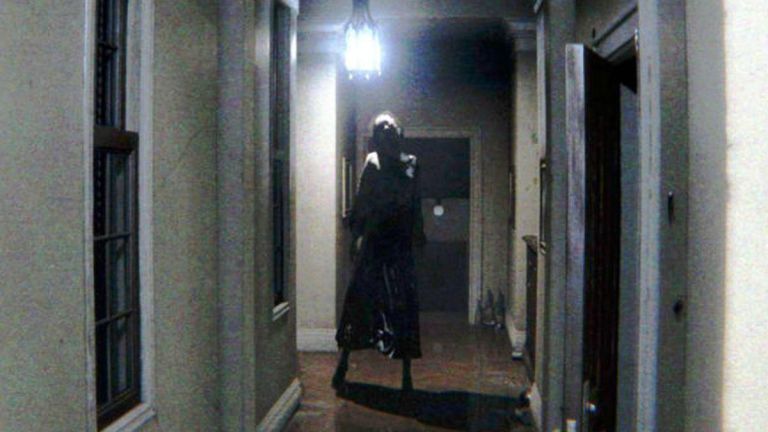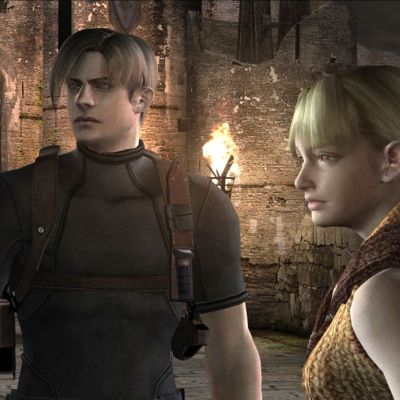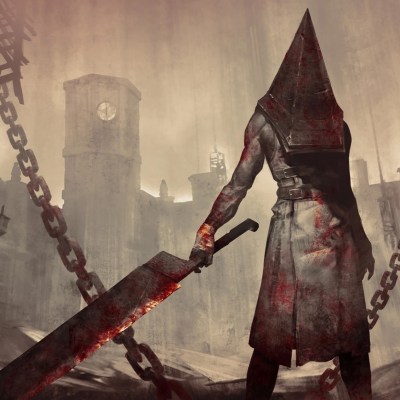Silent Hills Is the Best Video Game Never Made
If P.T. was just a preview of what was to come, then Silent Hills has to be the best game that was never made.

The groundbreaking survival horror video game franchise Silent Hill is poised for a full revival over the next several months. Konami is publishing a remake of the universally acclaimed Silent Hill 2 in October 2024 while a new installment, titled Silent Hill: Townfall, is currently in development by No Code and Annapurna Interactive. However, while it’s great to see Silent Hill emerge from a lengthy period of inactivity and bizarrely executed spinoffs, the franchise is still haunted by the ghost of the long-canceled title Silent Hills.
Perhaps the greatest video game never made, Silent Hills was intended to be a return to form for the Silent Hill franchise helmed by longtime Konami game director Hideo Kojima and fan-favorite filmmaker Guillermo del Toro. Unceremoniously canceled in the wake of Kojima and Konami’s abrupt rupture in their professional relationship and Konami’s changing video game strategy, all that publicly remains of Silent Hills is P.T., a playable teaser for the planned game that developed its own cult following and reputation. Nearly a decade after Silent Hills’ cancellation, the project’s notorious legacy continues to loom over the Silent Hill franchise and Konami itself.
The Downward Spiral of Silent Hill
Even back in 2012, when development on Silent Hills began after Konami approached Kojima about helming a new Silent Hill game, the franchise was already in a general state of decline. After 2004’s Silent Hill 4: The Room, Konami had moved the franchise away from its acclaimed development house, Team Silent, and largely entrusted subsequent games to Western developers starting with 2007’s Silent Hill: Origins. These entries saw mixed to negative reviews and diminishing sales, culminating in 2012’s Silent Hill: Downpour selling less than a million copies across its combined Xbox 360 and PlayStation 3 releases.
As the Silent Hill franchise began to flounder, Konami’s Metal Gear Solid franchise was flourishing under Kojima. Just as Silent Hill began struggling, Metal Gear Solid was reinvigorated by the 2008 release of Metal Gear Solid 4: Guns of the Patriots and its 2010 follow-up Metal Gear Solid: Peace Walker. As production ramped up on Metal Gear Solid V: The Phantom Pain, Konami was particularly impressed by Kojima Productions’ Fox Engine, a gameplay engine that executives felt could be perfectly suited for a potential Silent Hill title.
Just as Kojima had helped Konami revitalize the Castlevania franchise by serving as a close adviser on 2010’s Castlevania: Lords of Shadow, the company felt he could similarly benefit Silent Hill. Though Kojima is a well-publicized cinephile, he felt was something of a “scaredy-cat” when it came to horror films, a perspective that he felt could actually benefit the Silent Hills project. And with Kojima Productions’ proprietary Fox Engine being used for Silent Hills, Kojima set out to have a more hands-on role than he had with Lords of Shadow.
Hideo Kojima and His All-Star Friends
With the Fox Engine, Kojima planned to craft a gameplay experience unlike any that the Silent Hill franchise had released before, taking advantage of the engine’s more cinematic design possibilities. Kojima wanted Silent Hills to be a game that could viscerally scare the players in a new way as preliminary development on the planned title secretly began in 2012. To help create a more cinematic story and atmosphere, Kojima decided to turn to major Hollywood figures he personally admired to join the project.
As his reputation had expanded beyond the conventional bounds of the video game industry, largely thanks to his work on the Metal Gear Solid games, Kojima approached fan-favorite filmmaker Guillermo del Toro to co-direct Silent Hills with him. Months into development, Kojima openly contemplated working with Norman Reedus and Ryan Gosling on the project on his social media accounts, without publicly disclosing what the project was. While it is unknown if Kojima ever seriously approached Gosling, Reedus would eventually join the project.
As work continued on the unannounced Silent Hills, Kojima Productions was still working hard on finishing Metal Gear Solid V: The Phantom Pain and its prologue, 2014’s Metal Gear Solid V: Ground Zeroes. To formally announce Silent Hills and his involvement on it and whet fan appetite in the interim, Kojima decided on an unconventional way to promote the game through an elaborate short game, something more substantial than the usual demo, that would tease the gameplay style and tone of the project. What resulted was the only Silent Hills-related content ever released to the public, P.T.
Playable Teaser
Standing for Playable Teaser, P.T. was originally announced at Gamescom on August 12, 2014 and released for free on the PlayStation Store for the PlayStation 4 immediately following the announcement. P.T. was originally marketed as a demo for an untitled upcoming horror mystery game, with Kojima devising the fictional 7780s Studio to be credited as the game’s developer to help maintain the secrecy surrounding the true nature of the project. It was only when users began completing P.T. that the truth behind it and Silent Hills began to emerge to the public.
P.T. places the player in the haunted hallway of a residential home from a first-person perspective, a first for the Silent Hill franchise. Seemingly stuck in a loop, players must find clues and solve puzzles as they navigate the hallway to initiate changes to eventually break the cycle and escape. As these changes occur, the supernatural terror and disturbing atmosphere in the hallway steadily escalate, with the player stalked by the hostile ghost of a woman named Lisa. For those that manage to solve P.T.’s puzzles and finally emerge from the hallway, they are rewarded with the true announcement surrounding the project.
Upon completion of P.T., the players are treated to a cutscene as the perspective shifts from first-person to third-person, revealing the character they had been controlling to be played by Reedus. The screen then fades to white, formally announcing P.T. to be a teaser for Silent Hills, also confirming Kojima Productions’ involvement, along with del Toro as a co-director for the planned game. To forestall the announcement and let players feel like they earned the announcement, Kojima intentionally designed the puzzles to be difficult, estimating the teaser would take weeks to complete. However, intrepid gamers beat the teaser within hours of its release, catching Kojima off-guard.
Despite its billing as an elaborate teaser, P.T. itself was lauded as one of the greatest horror games of all-time, with particular praise focused on the immersiv and foreboding atmosphere, detailed presentation, genuinely earned scares, and deeper themes open to player interpretation. Kojima intended P.T. to be more of a mystery than an outright horror experience and consciously avoided including graphic violence and gore to rely on suspense and mood to deliver fear. P.T. was not planned to be directly linked to Silent Hills, but instead give players an idea of the gameplay experience and tone that the project would be going for. This would ultimately prove fruitless as Kojima’s 29-year business relationship with Konami came to a sudden end in early 2015.
A Parting of Ways
In March 2015, reports of a collaborative breakdown between Kojima Productions and Konami began to surface publicly, largely focused on the completion of Metal Gear Solid V. By March 19, 2015, Konami removed Kojima’s name and rebranded its internal branch of Kojima Productions from online materials surrounding the Metal Gear games, including Metal Gear Solid V. Though Konami was coy about the circumstances and Kojima himself remained publicly silent about the matter, Kojima would finally announce in December 2015 that he had indeed split with Konami and would relaunch Kojima Productions as an independent game development studio working on its own IPs.
This professional rupture of course spread to Kojima’s Silent Hills project, with both del Toro and Reedus mentioning as early as April 2015 that the game had been canceled. To add insult to injury, del Toro revealed that visionary horror manga creator Junji Ito had also been a collaborator on Silent Hills, something that had never been publicly announced by Konami or Kojima Productions prior to the game’s cancellation. By the end of April 2015, Konami issued a statement that Silent Hills was truly canceled but that the company intended to continue the Silent Hill franchise through other projects.
One of Konami’s most widely reviled moves of all, apart from the acrimonious split with Kojima and outright cancellation of Silent Hills, was that the company scrubbed P.T. from the PlayStation Store. Removed from the digital marketplace on April 29, 2015, P.T. was also unavailable to redownload if PS4 users deleted it from their console’s hard drive while an initial wave of eBay auctions selling PS4s with P.T. installed were quietly pulled down. Fan attempts to remake P.T. have been regularly shutdown by Konami, while the option to play P.T. on the PlayStation 5 through transferred backwards-compatibility with the PS4 was also discontinued. All in all, it felt like Konami’s diligence to remove all traces of P.T. were more thorough and organized than continuing the Silent Hill franchise itself.
The Legacy of Silent Hills
Try as Konami might, the memory and legacy of Silent Hills and P.T. continues to live on a decade after the playable teaser’s release. If anything, Konami’s efforts to delete P.T. has only strengthened its place in the hearts and minds of fans in the ensuing years as it developed its own mythic quality. Moreover, any Silent Hill game that Konami has produced since has only served to resurrect the specter of Silent Hills and P.T., with every new Silent Hill title judged against the high bar and frustrations held by those still stung by Konami’s treatment of Kojima and his eagerly anticipated project.
For his part, Kojima would reunite with del Toro and Reedus on his 2019 video game Death Stranding, which was commercially and critically well-received, proving Kojima could thrive just fine without Konami. Though the horror game OD is among Kojima’s upcoming games, one still can’t help but wonder what Kojima and his team could’ve done with Silent Hills and how it would have continued the vision of P.T. In the meantime, the legend behind P.T. and Silent Hills only continues to grow a decade since it was unveiled to the world, casting a large shadow over Konami and the Silent Hill franchise even as another attempt at a revival is in the works.


